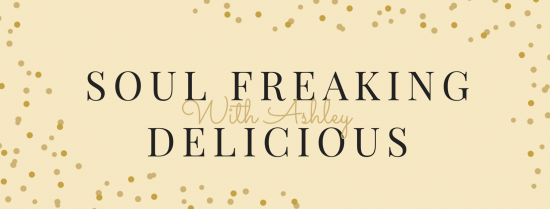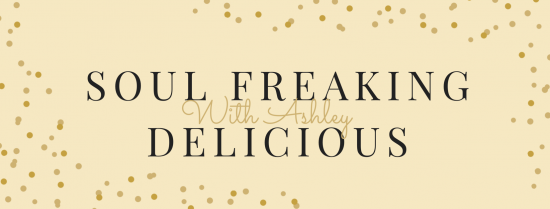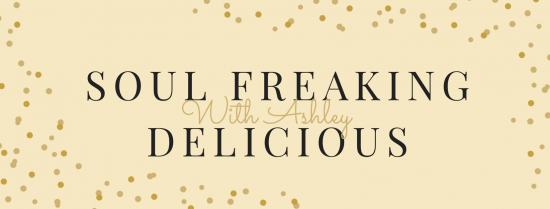Users Who Spiked

MIND SHIFT: CHANGING THE WAY CRITICISM AFFECTS YOU
Private Notes
Private Notes
Notes
Criticism no matter how constructive can feel soul-crushing. We love to pretend that words don't hurt, or unsolicited advice doesn't haunt our dreams. The truth is in short — it does. Most of the time people receive feedback at work, at school, in a romantic relationship or honestly any relationship ever. Communication is key, and how we communicate with each other can ruin those relationships. Receiving criticism might not be enjoyable however can be incredibly valuable. An employee wants to know how they are performing, which also means they need to know where improvements are necessary. The same is applied to relationships outside the workplace. Friends or lovers communicate their needs or standards and will make note of shortcomings. Ideally, feedback can be positive and negative allowing the recipient to review the information and grow. Although criticism can pick at our egos, cause insecurity and paralyze, studies prove that constructive criticism can motivate growth and success when done carefully. There is a right way and a wrong way of providing feedback, advice, or whatever you want to call it. There are also two ways to receive that information. Understanding why feedback is important can unlock potential, elevate work performance and strengthen relationships.
As a writer, I am often scrutinized. As soon as the keys are tapping I can hear every negative voice from my past. I hear my English teachers from high school, I hear college professor's advice or the red ink covering the article I thought was absolutely perfect. I see the corrections from my editor in ALL CAPITAL LETTERS. I don't know him personally but he is jabbing those keys so hard that I can hear the snarling through the screen. I almost changed my career because I let those voices pick my work apart and as they picked at every word, and error I could only see that I wasn't good enough. I let the edits and corrections multiply until I couldn't take it any longer. I tried to remember that criticism is a gift, even if it's wrapped poorly.
Everyone wants to succeed. There isn't a perfect path to the goals we set. Success only happens because of trial and error, and our mistakes are essential to our growth. As a dancer, often the class was paired and as one performed the other would assess the performance. The critique was always two strengths and one weakness. I can remember every weakness I ever received because it confirmed my own criticisms. I conditioned myself to only listen to the weaknesses because that's what I needed to focus on, and dismissed any compliment because they were usually so vague they couldn't be genuine. As a result, my art suffered. I didn't celebrate my strengths and I didn't use that momentum to resolve my weakness. Just because someone doesn't provide feedback constructively doesn't mean it's worthless. If a person is lost or struggling so awfully they are beyond help, I've found they are ignored. When a student or coworker shows potential they are nurtured, complimented, and included. Often we are receiving feedback because we are making progress already, and advice is a redirection, reminder, or point of focus.
Instead of fearing criticism and becoming a victim, use the advice to build a stronger self. Scott Mautz author of "Find The Fire And Make It Matter" explains in Inc Life that the link between fear and criticism is natural, but doesn't have to feel detrimental.
"Studies show we're four times more likely to remember negative criticism then praise (true even among happy people) and that bad feedback are processed more thoroughly than good.
Psychology research shows that it takes our brain experiencing five positive events to make up for the psychological effect of just one negative event" (Mautz).
Unfortunately many don't internalize what the people around us find valuable. Individuals tend to fixate on the negative comment and unravel from the inside. When a comment cuts your ego in half Mautz explains how to cope. Sometimes advice comes fast and isn't very carefully phrased. In moments like this Mautz mentions finding the truth in the comment. "Let criticism feed you, not your insecurities (Mautz)."
On the other side of this exchange, there is the individual offering feedback. This person might be trying to help, and simply hasn't communicated effectively. This person also might have ill-intentions and are trying to tear you apart. Knowing the difference can keep you sane. While I think all feedback can be spun in a productive manner whether the person providing the feedback intended to help or not. If you want to offer feedback and are coming from a place of support there are specific ways to execute the motion. Jean Ali Muhlbauer, from The Muhlbauer Companies, LLC explains that when offering advice it's important to ask yourself what are you trying to achieve? A quick assessment before boiling over like a tea kettle can separate constructive criticism from hurtful criticism. Julie Colbrese, from Hot Coffee Coaching, explains that you should identify your intention and whether or not they can fix that issue. The remarks should be used to acknowledge without sparking shame. The point is to solve problems and not create conflicts. "Feedback, whether positive or constructive needs to take people from one level of performance to another. When checking whether your criticism is helpful, ensure you are stating the facts as you know them and how it affects the end state. For example: "When you use X behavior, it affects Y person in Z way." You are handing someone criticism that is actionable and factual and begins a discussion." Leila Bulling Towne, from
The Bulling Towne Group, LLC explains. At work, at home, with friends or family feedback is supposed to reshape and strengthen the whole system. When a person understands how to grow, they can.
Tasha Eurich writes in the Harvard Business Review the correct way to respond to negative feedback. The article goes into detail on how to manage comments when they don't appear conducive. In general, it is innate for people to defend themselves and their actions. Eurich explains that not everyone is going to provide feedback even though those people can play an essential role in your success. Instead of shutting down, or overreacting, take the advice home and unpack all of it. By swallowing a defense at the moment and listening to the whole message, a truth might be uncovered in their statements and therefore is helpful. While there are many that love to share their opinions, opinions can get messy. Identify the people that you trust, and cultivate those relationships. Use their opinions to engage in productive conversations and create actual solutions to improve your goals. Eurich describes this group as your " loving critics". Eurich explains that critics can become our greatest champions to our success, but that after receiving negative marks they seclude themselves away to reflect or dissect the interaction. Don't miss the point of the evaluation. If the person giving advice is coming from a positive place and genuinely trying to cultivate your potential, don't take it the wrong way. We all want to be perfect but there is no such thing. Take the advice, and use it appropriately.
It can be difficult missing the mark when it comes to expectations. Often we are our biggest critics, and when someone outside of us sees our flaws it can sting. As an individual I work to maintain a positive mindset of my work, and am still learning that just because it isn't a compliment doesn't mean it doesn't hold truth. Whether or not the feedback is coming from a supportive place is irrelevant to me, the worst feedback I can receive is nothing at all. I have come to appreciate anyone who has taken the time to read or comment because at the very least my words motivated you to say something.
https://www.inc.com/scott-mautz/science-says-were-wired-to-fear-criticism-so-fix-it-with-these-6-tips.html
https://www.forbes.com/sites/forbescoachescouncil/2018/06/20/is-your-criticism-constructive-or-harmful-13-ways-to-assess-your-feedback-style/#9170551341aa
https://hbr.org/2018/05/the-right-way-to-respond-to-negative-feedback





































